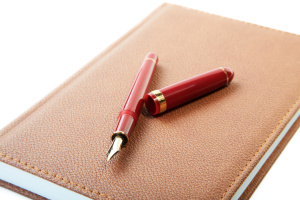Journaling has been an important part of my life over the years. I continue to use it daily (in some form) to collate my thoughts and work through issues to find solutions. Did you know that some of the most successful people in history are known journalers? It has been well documented that people like Thomas Jefferson, Ralph Waldo Emerson, and Winston Churchill often carried notebooks to record their thoughts.
Probably the most influential speaker/writer on journaling is Jim Rohn
“If you’re serious about becoming a wealthy, powerful, sophisticated, healthy, influential, cultured and unique individual, keep a journal. Don’t trust your memory. When you listen to something valuable, write it down. When you come across something important, write it down.” – Jim Rohn
Still not convinced? Here are 7 reasons why you should keep a journal:
1- Regular writing stimulates your mind- Like exercise for your brain, journaling helps build memory and your ability to recall and stay mentally active.
2- Journaling helps your creativity- When we are young we have wild and vivid imaginations. They allow us to think outside the box and come up with solutions not considered. When we journal we unleash that imagination from our past and creative problem-solving emerges.
3- To better understand yourself and your thinking pattern- nothing brings clarity to your mind and familiarity with yourself and why you think the way you do as journaling.
4- Life’s little details- with so much information swirling around us daily and so much media vying for our attention, the best way to remember the important details of our life is to write them down.
5- Journaling is motivation – write positive affirmations, write favorite quotes or song lyrics that pick you up. Return to your journal when you need a boost, a smile or some motivation.
6- Make a connection – journaling helps you connect your emotions with your values and your values with your goals. Like the dot-to-dot pages you worked on as a kid, journaling connects thoughts, feelings, intuitions and observations that you hadn’t connected previously.
7- Track your development- what is measured can be improved. Journaling is a tracking method for keeping tabs on how you are doing, where you are succeeding and areas of improvement.
Now, you may be thinking this journaling idea sounds pretty good but how do I do it? Well here are some tips on journaling that might help you get started:
1- Keep it simple- there is no “right” format, don’t get hung up on spelling or grammar and especially don’t concern yourself with penmanship. Find a style and a voice that works for you whether it is narrative in the first person or third person or if you prefer checklists or doodles; to each their own.
2- Frequent- try to write often. Cramming 6 months of observations, feelings and ideas into an afternoon of writing is not as productive as 2 minutes before bed jotting down your thoughts for the day.
3- Consistent- set aside a time and a place on a daily or weekly basis to recap notes, quotes, ideas and feelings during the previous time period. While I recommend carrying a notebook at all times and writing when ideas come, it is still important to have a consistent time to debrief and connect ideas.
4- Enjoy- take a deep breath and keep your journaling an enjoyable experience. Do not judge what is written or share it but keep it as your personal treasure. Have fun and occasionally take the time to reread your writings and relive the joyous journey.
Finally, here are some ideas of things to keep track of in your journal. Of course they are just ideas and you may add many more to the list or skip over ones not applicable. This is your journal and you can record whatever you like.
• Personal situations and lessons learned
• To do lists (who doesn’t love keeping lists?)
• Goals you’re working toward and steps to achieve them
• Favorite quotes (I share some of my weekly favorites here)
• Music you’ve been inspired by
• Websites to remember and return to
• Books to read and reread (take a look at my bookshelf here)
• Record your successes.
As you can see, I am a strong believer in the power of journaling. It is one practice that has definitely had a huge impact on my development and maturity at home and professionally. As Jim Rohn taught, so I try to be, “I am a buyer of blank books. Kids find it interesting that I would buy a blank book. They say, “Twenty-six dollars for a blank book! Why would you pay that?” The reason I pay twenty-six dollars is to challenge myself to find something worth twenty-six dollars to put in there. All my journals are private, but if you ever got a hold of one of them, you wouldn’t have to look very far to discover it is worth more than twenty-six dollars.” How much is your journal worth?


